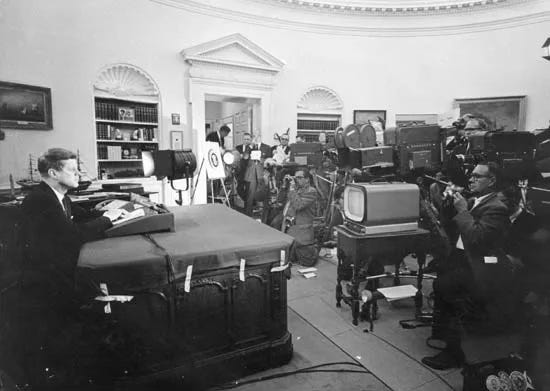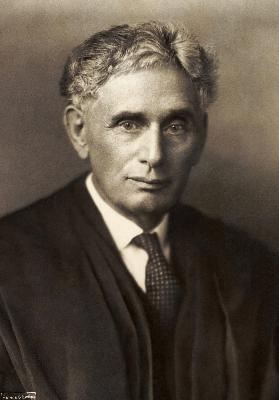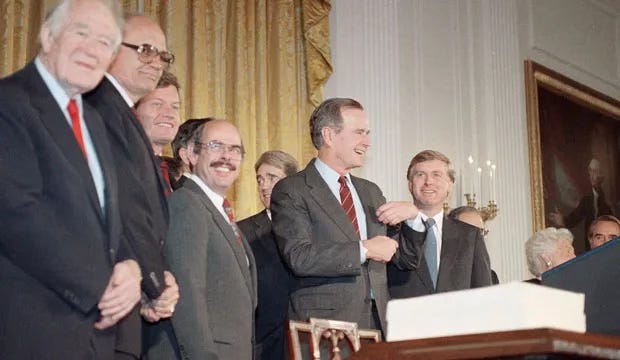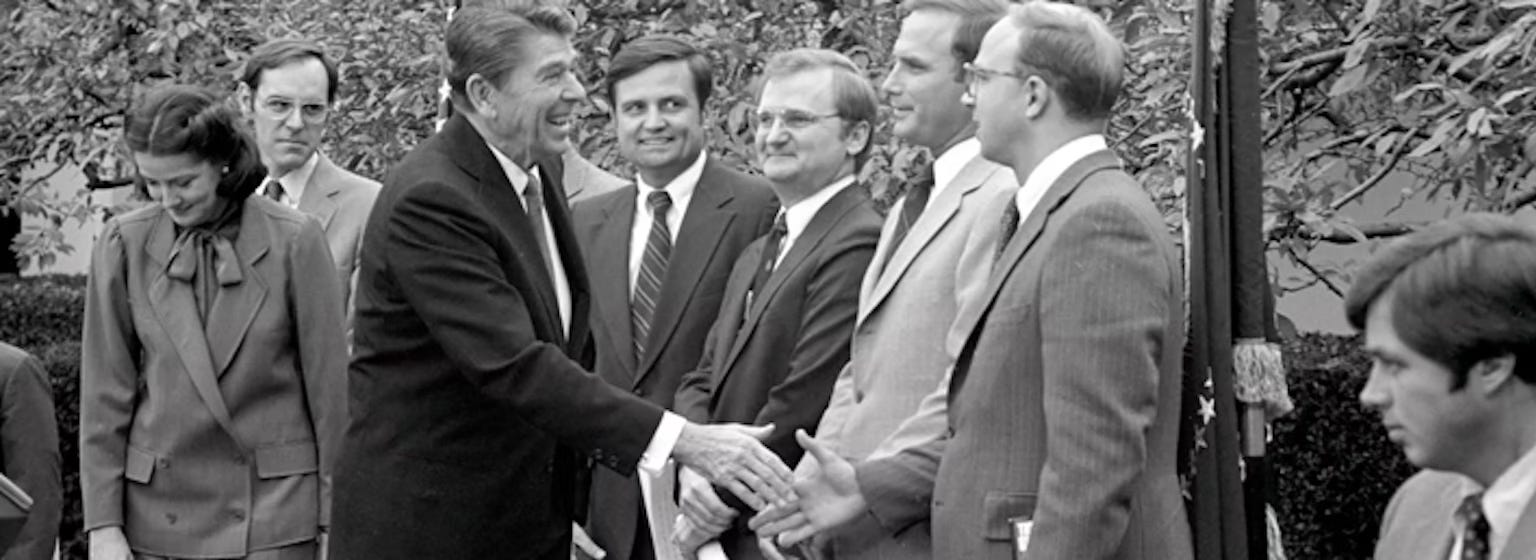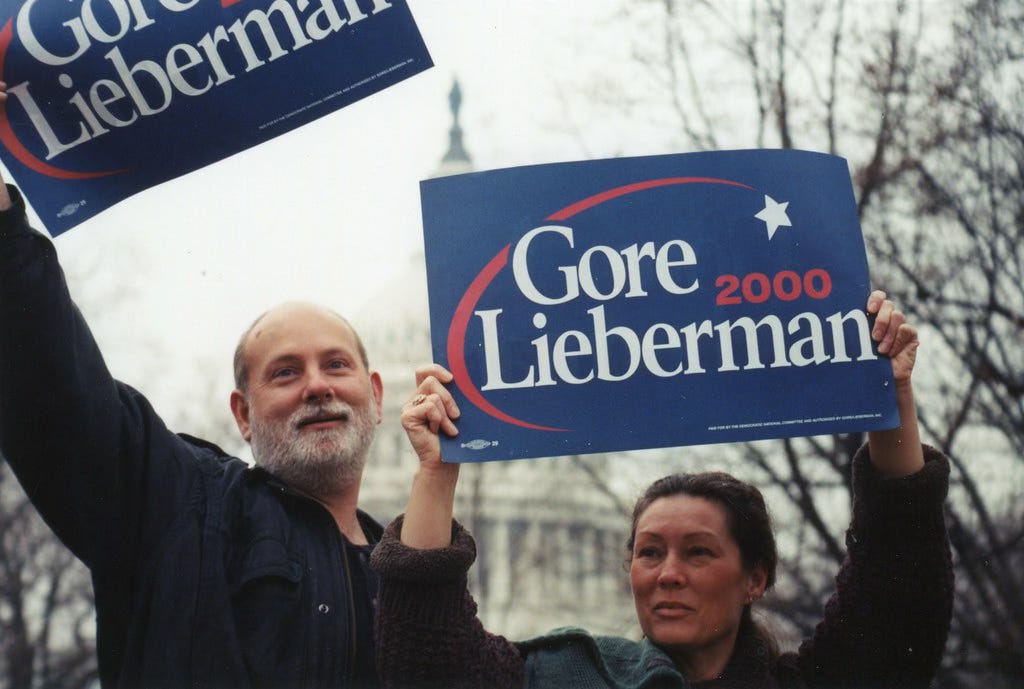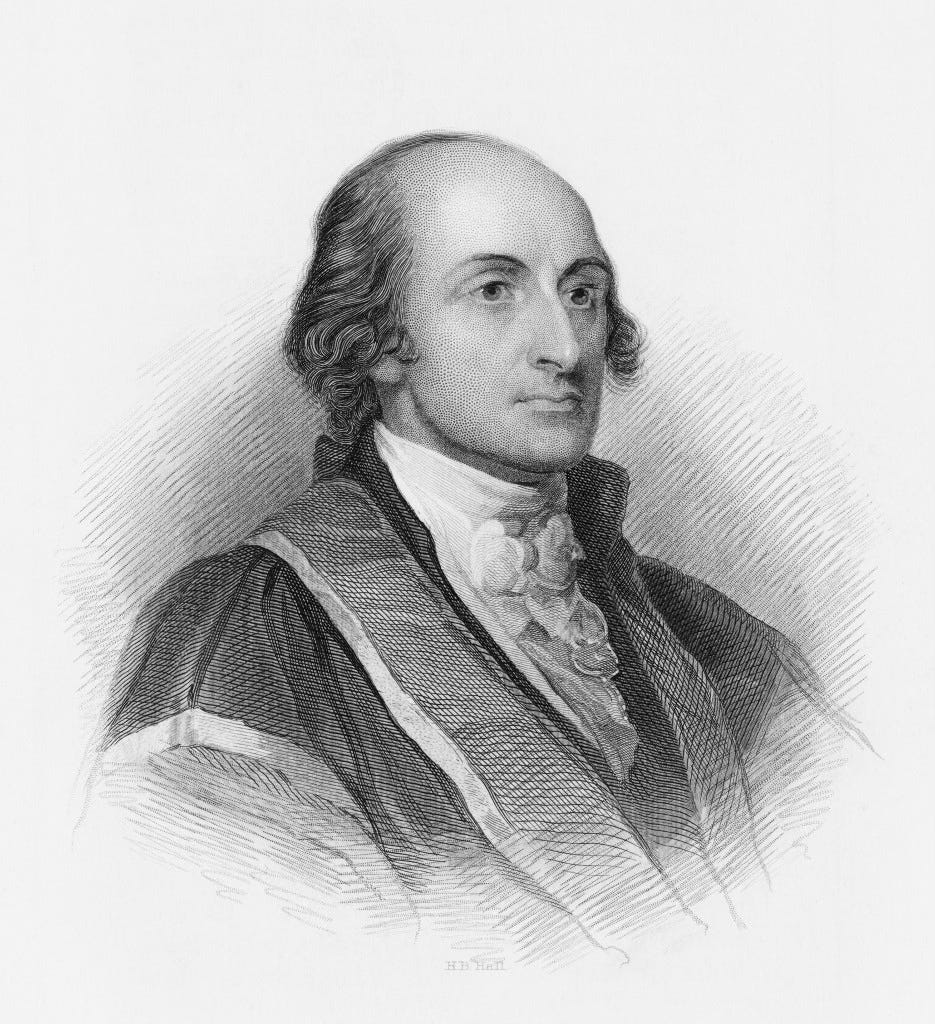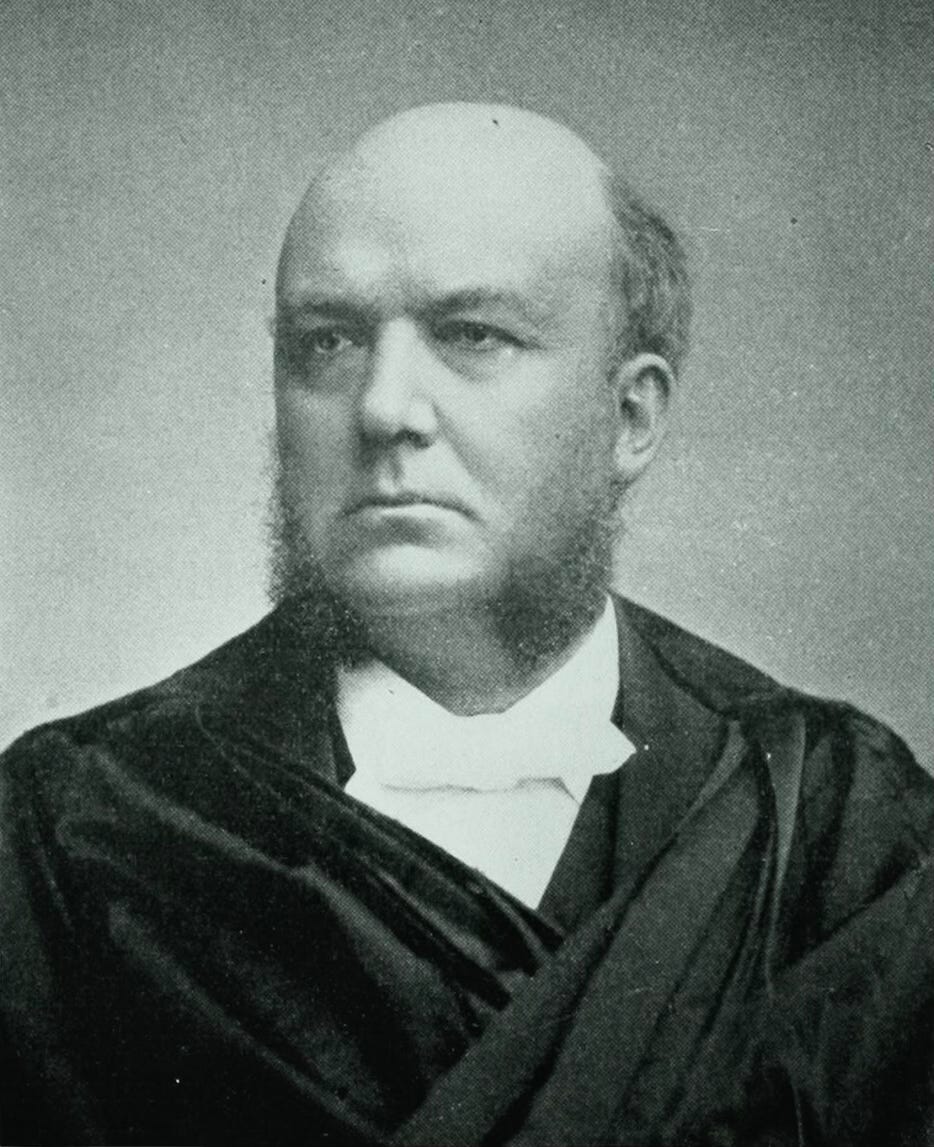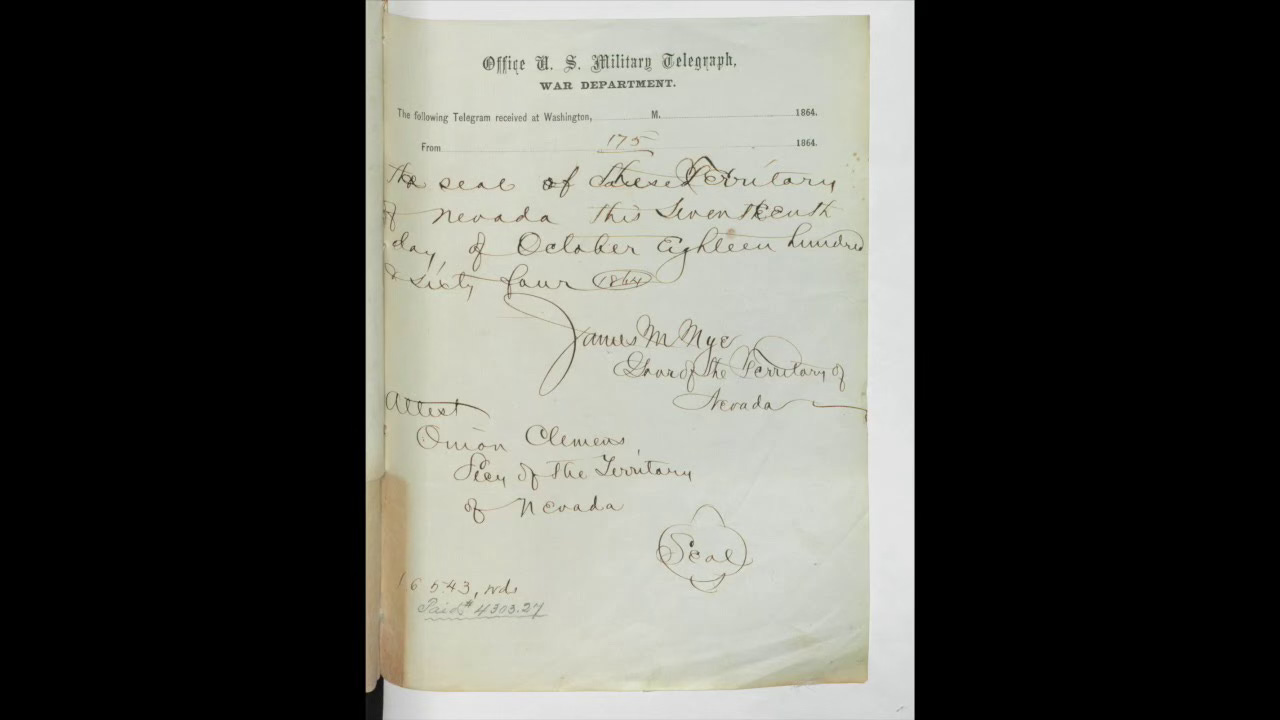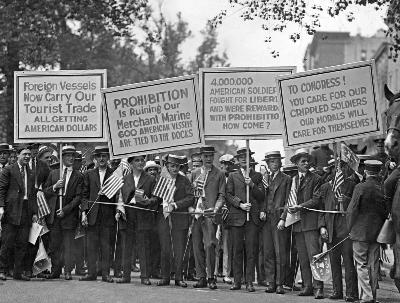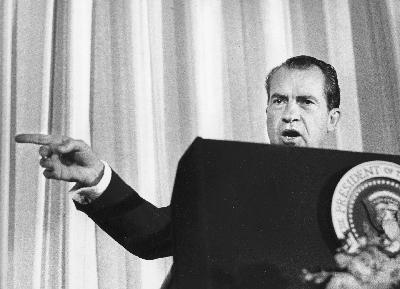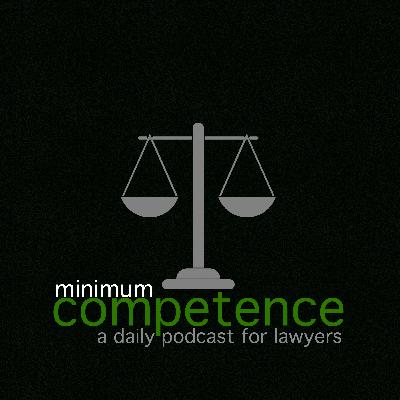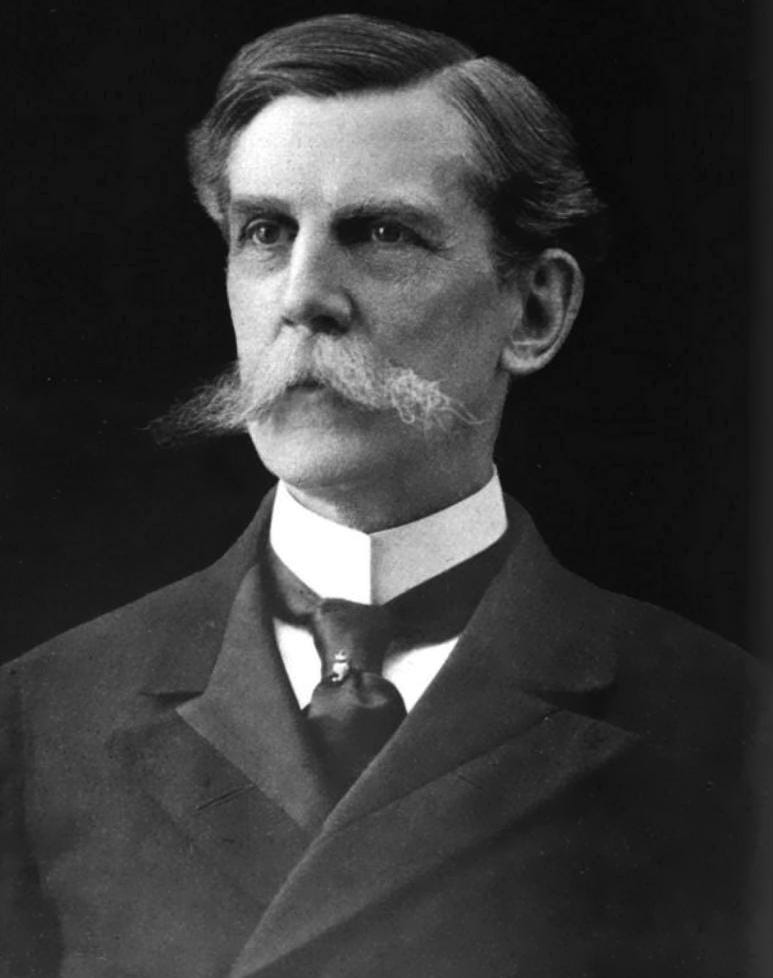Legal News for Weds 10/22 - Trump Wants $230M from the DOJ, AZ Sues Over Congress Swear-in Delay, Apple App Store Fight Continues and SEC Chief Sidesteps APA
Description
This Day in Legal History: US Naval Blockade of Cuba
On October 22, 1962, President John F. Kennedy delivered a televised address announcing that the United States would impose a naval “quarantine” on Cuba. This action followed the discovery of Soviet nuclear missile installations on the island, just 90 miles from U.S. shores. The announcement marked the beginning of the Cuban Missile Crisis, a 13-day standoff that brought the world closer to nuclear war than ever before. In his address, Kennedy framed the deployment of Soviet missiles in Cuba as a direct threat to American national security and international peace. He warned that any nuclear missile launched from Cuba would be considered an attack by the Soviet Union, prompting a full retaliatory response.
The legal foundation for the blockade, while not formally declared an act of war, was justified under the collective security framework of the Organization of American States (OAS). The U.S. sought and received OAS backing to frame the blockade as a multilateral action rather than a unilateral act of aggression. Over the next six days, the world watched as U.S. Navy ships encircled the island, intercepting Soviet vessels bound for Cuba. Behind the scenes, intense diplomatic negotiations unfolded between the White House and the Kremlin.
Ultimately, Soviet Premier Nikita Khrushchev agreed to dismantle the missile sites in exchange for a U.S. public pledge not to invade Cuba and a secret agreement to remove American missiles from Turkey. The crisis ended without military conflict, but it exposed the fragility of Cold War-era deterrence. The blockade, while effective, raised unresolved legal questions about executive war powers, international law, and the role of regional organizations in legitimizing force. It also led directly to the establishment of the “hotline” between Washington and Moscow and spurred negotiations for the 1963 Nuclear Test Ban Treaty.
President Donald Trump responded to reports that he is seeking $230 million from the U.S. Department of Justice (DOJ) for legal costs tied to federal investigations, stating he is not personally involved in the request but would donate any awarded money to charity. The New York Times reported that Trump is pursuing compensation, alleging the investigations against him were politically motivated. Trump claimed he has not been in direct contact with his lawyers about the matter but believes the DOJ owes him for what he called unfair treatment related to election interference investigations.
Trump has filed two administrative claims—typically a precursor to a lawsuit. One challenges the FBI and special counsel’s probe into Russian interference in the 2016 election. The other concerns the FBI’s 2022 search of his Mar-a-Lago residence, during which classified documents were seized, and accuses the DOJ of malicious prosecution and privacy violations.
The filings mark a notable reversal, as Trump now leads the federal government that previously investigated him. A DOJ spokesperson stated that any potential conflicts in reviewing the claims would be handled according to ethics guidance from career officials.
Trump says Justice Department owes him money, vows to donate any payout to charity | Reuters
The state of Arizona has filed a lawsuit against the U.S. House of Representatives over the delay in swearing in Democrat Adelita Grijalva, who won a special election to replace her late father, Representative Raul Grijalva. Although Speaker Mike Johnson has said she will be sworn in when the House reconvenes, he has not called lawmakers back to Washington, citing the ongoing government shutdown and the Senate’s failure to pass a resolution.
Arizona Attorney General Kristin Mayes argues in the suit that the delay violates the Constitution by preventing a duly elected representative, who meets all legal qualifications, from assuming office. The state is asking a judge to recognize Grijalva as a House member upon taking the oath, even allowing someone other than Johnson to administer it if necessary.
Speaker Johnson dismissed the lawsuit as “absurd,” insisting the House controls its own procedures and accusing Mayes of seeking publicity. With three vacancies, the current House makeup is 219 Republicans to 213 Democrats. Once sworn in, Grijalva would slightly narrow that margin to 219-214.
Arizona contends the delay is politically motivated, aimed at stopping Grijalva from supporting a petition that would force a vote on a bill requiring the release of all unclassified documents related to Jeffrey Epstein from the Trump administration. Grijalva herself has accused Johnson of silencing her district to protect political allies and obstruct justice for Epstein survivors.
Arizona sues US House over delay in swearing in Democrat Grijalva | Reuters
Apple has asked the U.S. Court of Appeals for the Ninth Circuit to overturn a lower court ruling that restricts its ability to collect commissions on certain app purchases. The request follows a contempt finding by District Judge Yvonne Gonzalez Rogers, who ruled in April that Apple had violated her previous 2021 order by continuing to impose indirect restrictions on alternative payment systems for app developers. That earlier order came out of a lawsuit filed by Fortnite creator Epic Games, which sought to loosen Apple’s control over in-app transactions.
In the appeals hearing, Apple’s attorney argued that the district judge went too far by expanding the original injunction, and insisted that Apple deserves to be compensated for developers’ access to its ecosystem. Apple claims it followed the original court order but maintains it has a right to impose a fair commission, including on external purchases. After Apple removed prior restrictions, it introduced a new 27% fee on purchases made outside its App Store if the user clicked a link within the app—prompting Epic to argue that Apple is still undermining the court’s intent.
Judge Smith of the appellate panel expressed concern about the potential financial impact of the new injunction, suggesting the stakes run into billions of dollars. Epic’s attorney countered that Apple shouldn’t get another chance to justify its commission practices after allegedly misleading the lower court. The district judge also referred Apple and an executive to federal prosecutors for a potential criminal contempt investigation.
A decision from the appeals court is expected in the coming months, and the case could reach the U.S. Supreme Court if further appealed.
Apple asks US appeals court to lift app store restrictions in Epic Games case | Reuters
SEC Chairman Paul Atkins is advancing a fast-track strategy to implement deregulatory changes without going through the full rulemaking process, which often takes a year or more and is vulnerable to legal challenges. Appointed under President Trump, Atkins is using policy statements, guidance memos, and interpretations of existing law to relax corporate disclosure rules, restrict shareholder proposals, and expand companies’ ability to divert investor fraud claims into mandatory arbitration.
For instance, the SEC recently issued guidance allowing companies to include arbitration clauses in their filings—avoiding formal rulemaking while significantly altering investor rights. Similarly, Atkins has encouraged companies to reject environmental and social shareholder proposals under Delaware law, without a formal vote by SEC commissioners. Critics, including Democratic Commissioner Caroline Crenshaw, argue this approach sidesteps transparency and due process.
While Atkins plans to propose new rules on shareholder resolutions and corporate disclosures by April 2026, current changes are being made through interpretations and enforcement discretion. This comes amid a government shutdown that has furloughed most of the SEC’s staff, further limiting the agency’s capacity to pursue traditional rulemaking.
Atkins has also voiced support for eliminating quarterly reporting and scaling back executive compensation disclosures. However, even if rules are adopted, their durability is uncertain. Previous SEC rules—such as Biden-era climate disclosures and Gensler-era hedge fund regulations—have faced legal reversals. Experts note that rules with bipartisan support and grounded in market efficiency are more likely to survive than politically motivated ones.
SEC Chief Fast Tracks Agenda, Averting Slog Through Rule Changes
This is a public episode. If you'd like to discuss this with other subscribers or get access to bonus episodes, visit www.minimumcomp.com/subscribe

